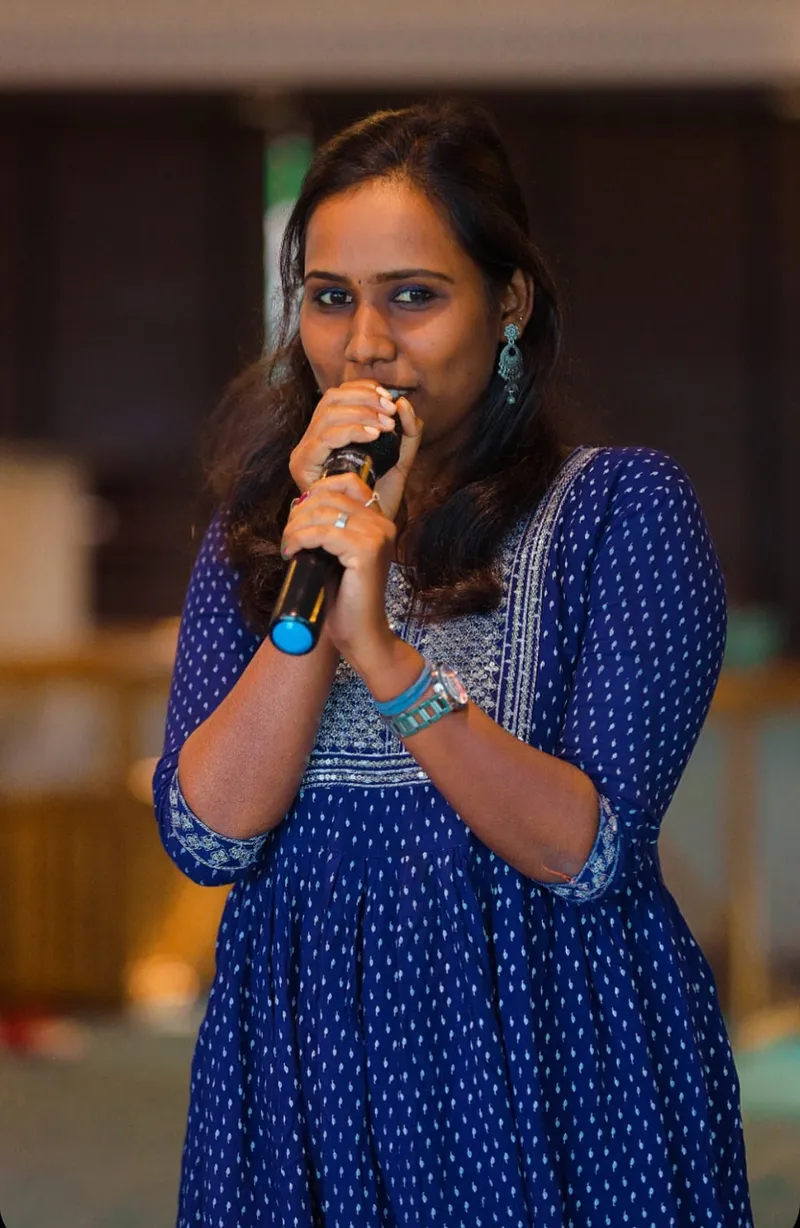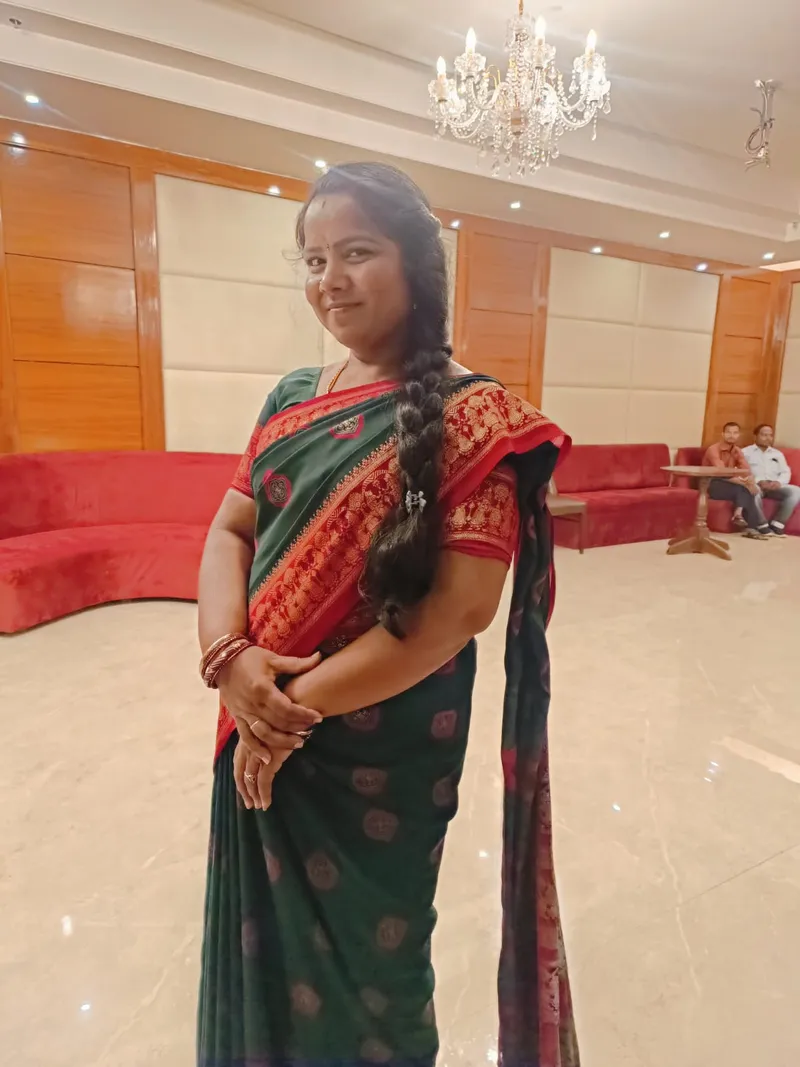Meet the women who overcame struggles in garment factories to champion women’s rights
Janaki and Kalpana, once garment factory workers in Tamil Nadu who endured harsh and exploitative conditions, have transformed their experiences into a powerful movement for change.
Women make up more than 60-70% of the garment industry workforce in India that employs 45 million people. Many of these women face exploitative working conditions, including trafficking and forced labour. They earn less than men and often face malnutrition, domestic and gender-based violence, and sexual harassment.
Despite the Factories Act 1948 ensuring the health, safety, and welfare of women, it has failed to protect them from exploitation. With only about 10% of the garment factories being unionised, women workers often lack the support to demand better working conditions.
This underscores the need for more women leaders to speak up for their rights, ensure laws and policies are upheld, and hold governments accountable for making the industry a safe place for women.
Janaki and Kalpana, former workers in the garment industry in Tamil Nadu, recount the horrors of working for more than 15 hours every day under inhuman conditions with limited access to healthcare and other facilities.
Today, they are leaders of Garments and General Workers Union (GAGU) based in Tamil Nadu, a union that works to protect women from all kinds of exploitation.
They are also leaders of ILFAT (Integrated Leaders Forum Against Trafficking)—a pan-national forum of, for, and by survivors of human trafficking. With nearly 4,000 members across seven states, ILFAT serves as a network trying to amplify survivor voices and drive systemic change.
Here are their stories, in their own words.
Janaki, Erode, Tamil Nadu

Janaki
“After I finished my 12th standard, my parents couldn’t afford to send me to school. A girl from our village was working in a textile factory in Coimbatore and her parents told mine that I could also work there and would be given facilities to study. The company also promised Rs 1 lakh for my wedding if I worked for three.”
“Later I found out that the neighbor was an agent who got a commission of Rs 3,000 from the industry management for getting me to work.
“I was placed as a helper at first. We lived in a hostel with 10-11 girls in a room. We had to wake up at 4 am to get access to a bathroom and get ready for work.
“I went in at 8 am, and while the shift ended at 5 pm, I had to continue working sometimes up to 10 pm. I was paid around Rs 4,000 a month and no overtime wages.
“I had to stand all the time with hardly any restroom breaks. Even if we pleaded that we were on our period, they wouldn’t allow us a short break.
“I wasn’t allowed to call home. There was no ID card or proof that I was working in the company even if I got out and complained about the conditions. In between all this, there was no way I could continue my education.
“In my locality, Periyar Nagar in Gobichettipalayam block, an NGO called READ (Rural Action and Development) was working for women’s and girls’ empowerment, offering tuitions to girl students and raising awareness about the conditions of girls in garment factories.
“When I couldn’t take it anymore, and wanted to quit my job, the management didn’t allow me. My parents approached READ and the team rescued me from the factory.
“They also assured me that they would support my education. I completed my BE and through various training sessions from READ, took over as secretary of the district’s women federation.
“After I got married, I moved to Sathyamangalam in the same district and started working with the READ chapter here that was working in 100 villages where girls were working in garment factories and were the most affected.
“We started GAGU in 2018 and started raising awareness about the exploitation faced by women in the garment industry. We started questioning the government about trafficking and action taken on cases filed. We have supported girls to leave these factories and have a better life. We rescued a migrant girl who was sexually harassed and worked as a bonded labourer. We ensure women workers are given PF and ESI benefits, and their health is taken care of.
“I joined ILFAT as a leader in 2019, and am using this form to raise the issues of women in the textile industry at the national level, because a lot of trafficking happens in the system. GAGU works in Erode and Tirupur districts and hope to expand our work throughout Tamil Nadu.
“There are many Janakis out there waiting to be rescued. My work has just begun.”
Kalpana, Coimbatore

Kalpana
“When I was a child, my father would often get drunk and beat us. There was very little space at home to sit and study. I fell ill, couldn’t write my 9th standard exams, and failed the class.
“My mother urged me to go back to school, but I was ashamed to sit with girls who were my juniors. Amma said I had to work, so I started working in a bike and car spare parts unit near my home.
“I worked for Rs 30 a day for eight months. The work was back-breaking and I often fell sick. I got married at 15 years and had two children by the time I was 18 years old. My mother-in-law said she’d look after the children and asked me to go to work.
“I joined a textile mill and since I worked hard, they made me operate heavy machinery and promised a better salary that never came. I suffered from stomach pain, swelling and allergy. I left after 1.5 years and went back again because of family circumstances.
“The NGO, READ used to take tuitions in my locality and I mostly avoided their meetings. After a neighbour compelled me to attend, I went and what I heard shook me. They spoke of workers’ rights and the right to demand PF and ESI.
“I asked my manager about my PF and ESI, and though it took a while, the process was done. My complaints and inquiries didn’t go well with the management. They would put me to work under the hot blazing sun or to pick cotton. They would often cut my wages for flimsy reasons.
“I worked in such conditions for five years. Upon a tip by an anonymous source, READ Social Services, an NGO in Tamil Nadu, was able to carry out the rescue operation with the help of the local administration in the district where the mill was.
“Now, I am a member of GAGU and an ILFAT leadership council member, working for women's rights in the garment industry.
“I want to make women workers understand their rights. Whatever may be the circumstances that compel them to take up jobs in garment factories, they must be aware that under the law, they are entitled to rights. I want to help them in every way I can.”
An ILFAT spokesperson rightly puts it, “Human trafficking is a pervasive and often invisible form of exploitation, with millions in India suffering in silence through bonded labor, forced labor, and coercion. It is often conflated with sex trafficking but important to recognise the various forms of this societal evil.”
“ILFAT stands with survivors like Janaki and Kalpana, who have triumphed over unimaginable hardships and are now empowering other survivors to ensure that no one goes through what they did.. We must recognise and address the broader social forces—such as migration, gender inequality, and climate change—that contribute to trafficking and work together to dismantle them,” they added.
Edited by Megha Reddy






